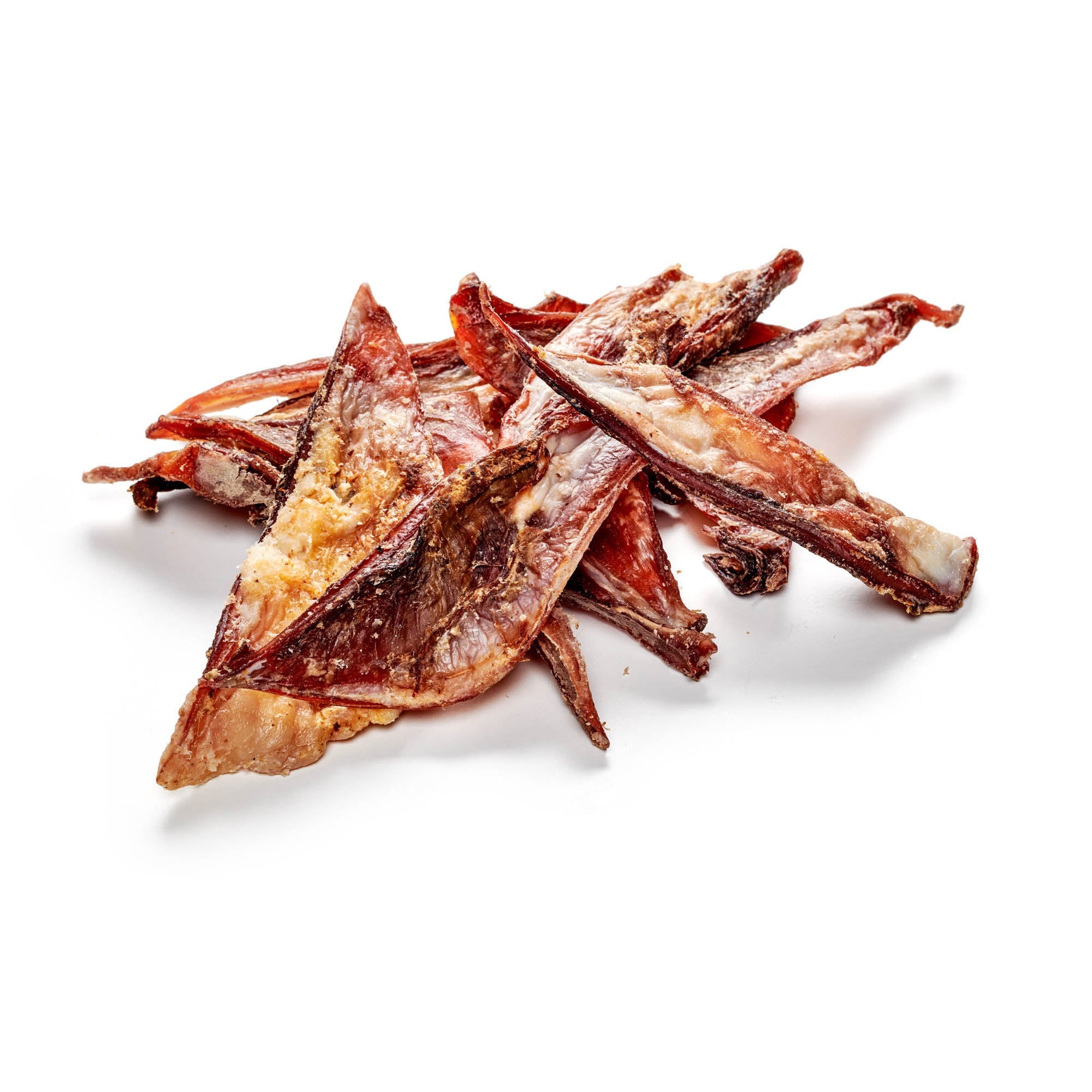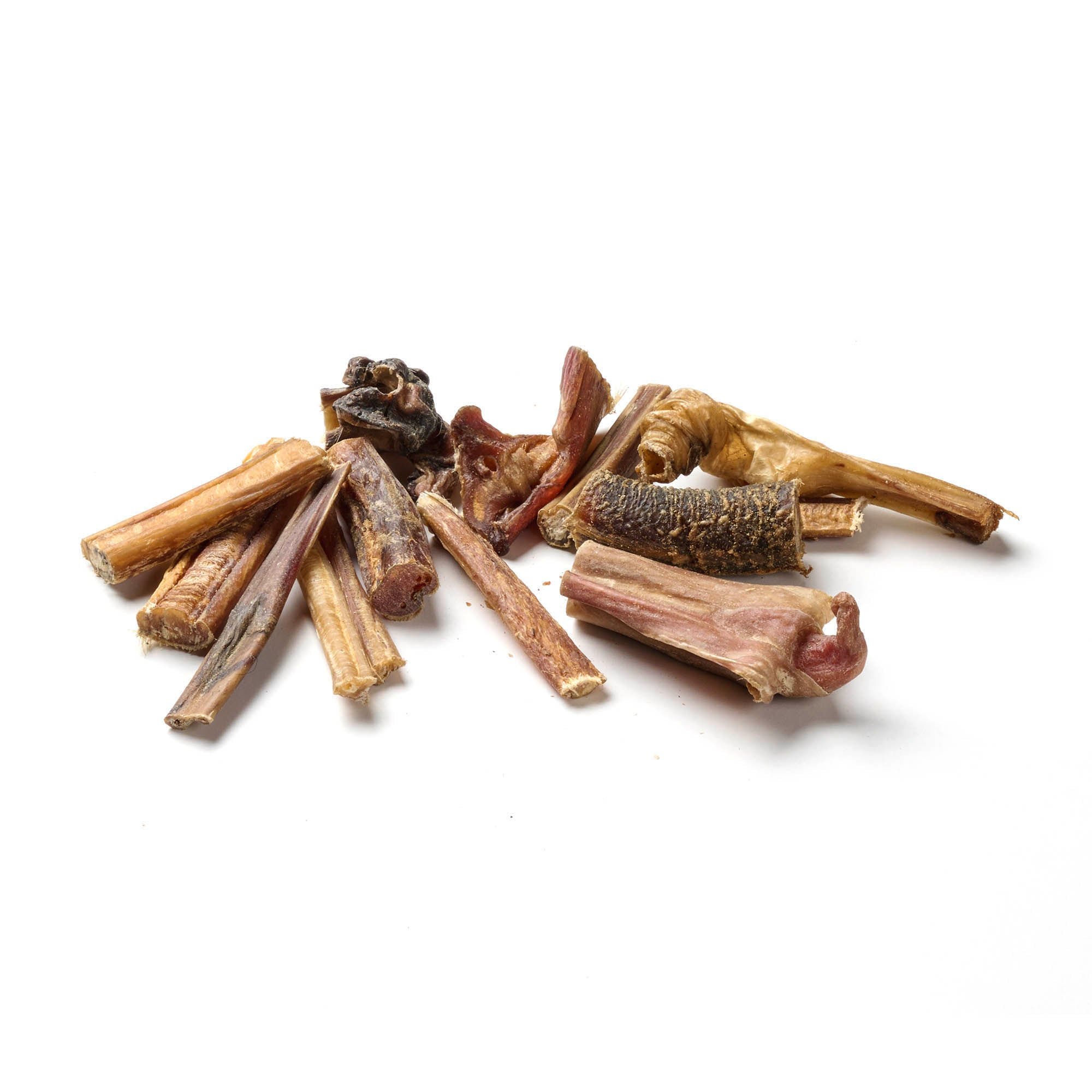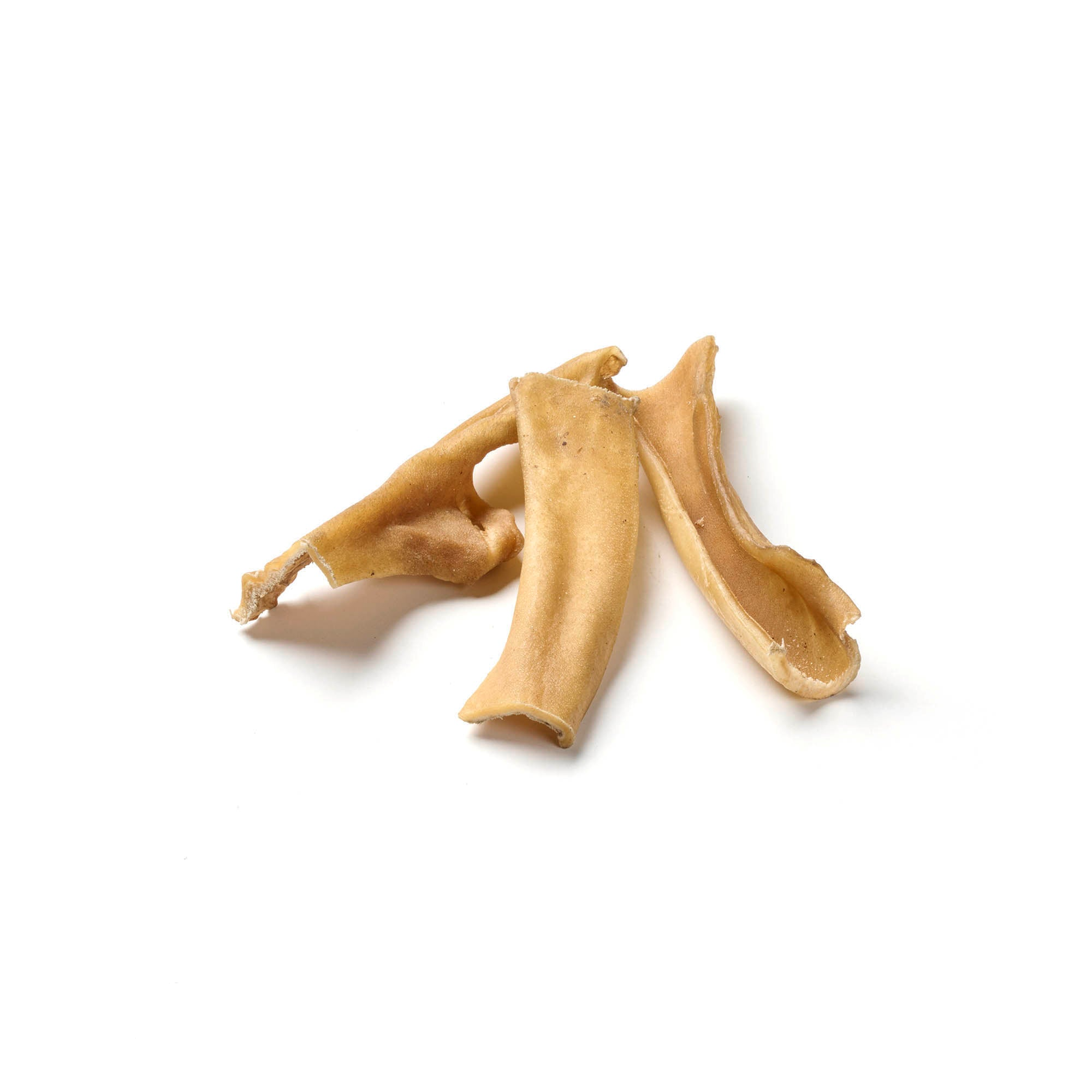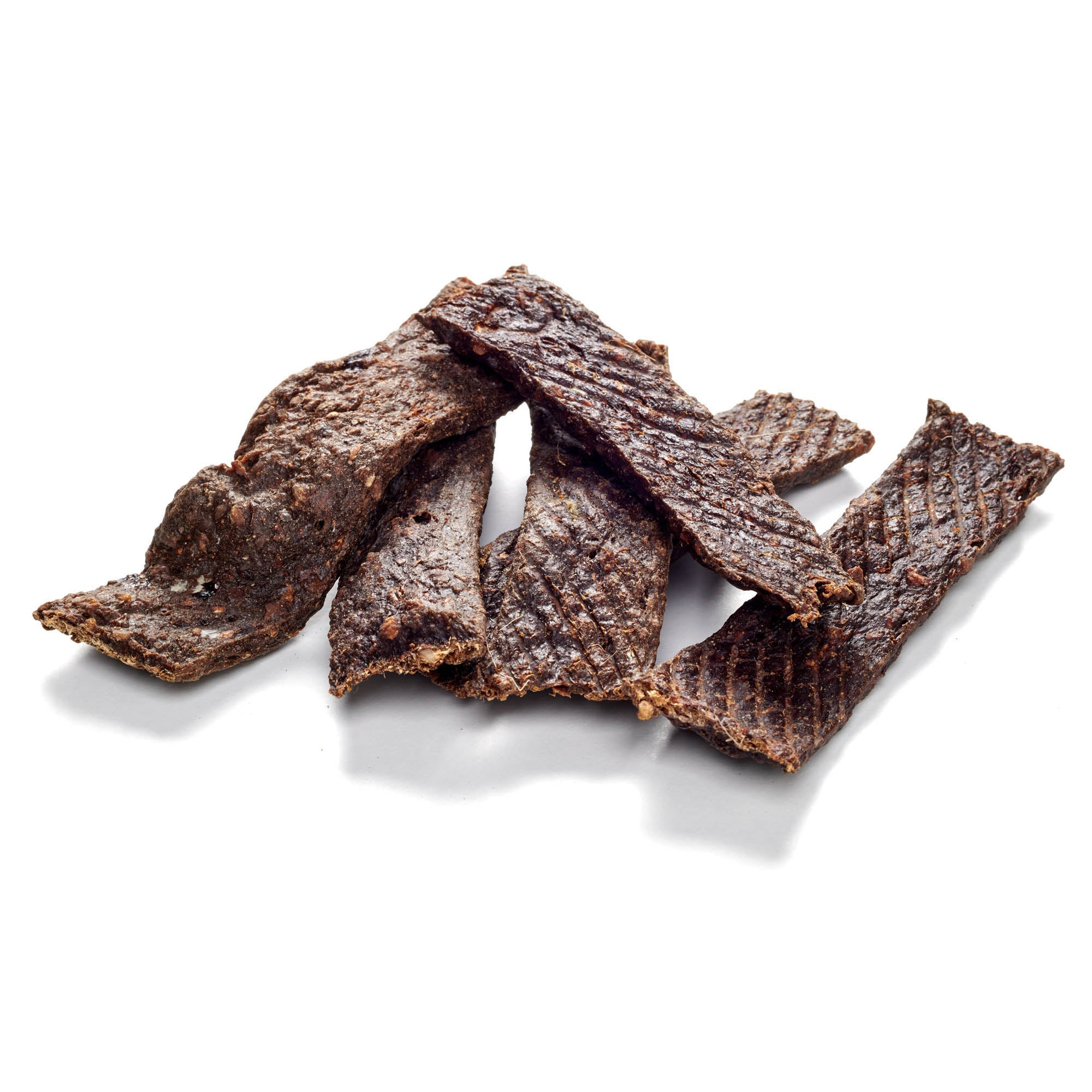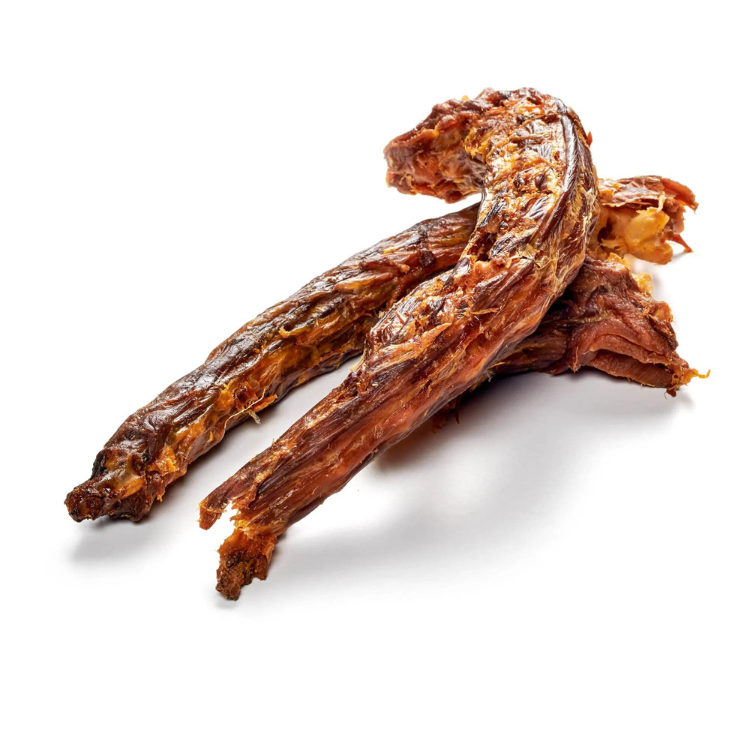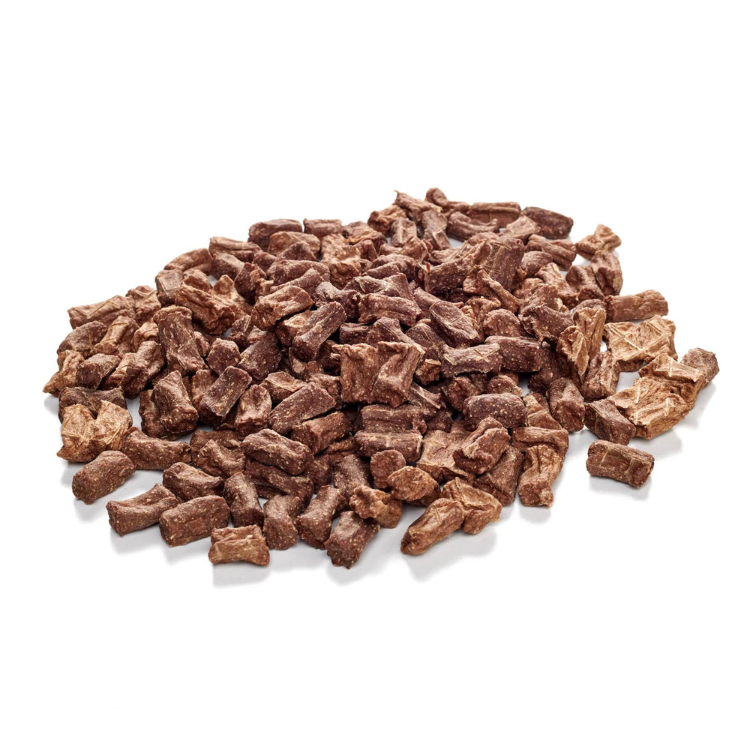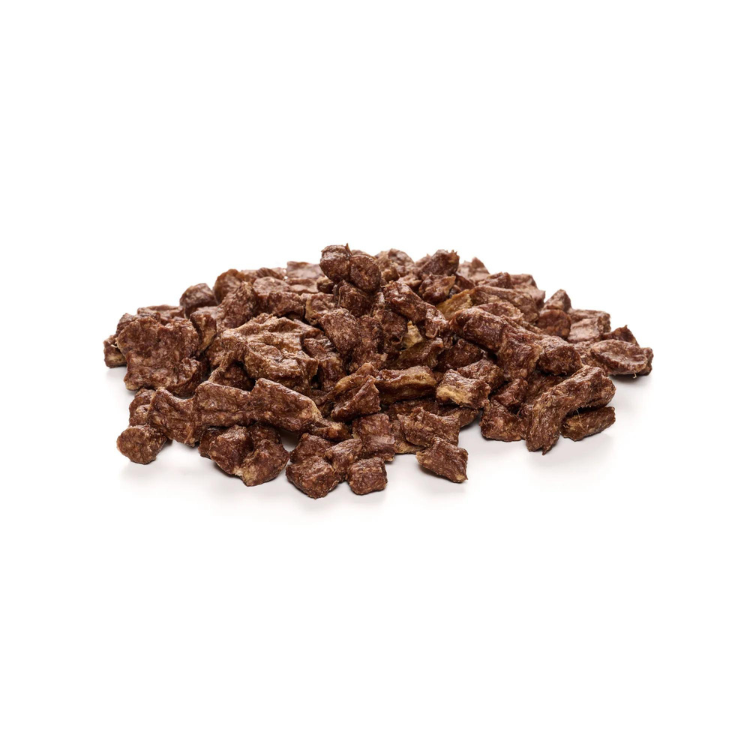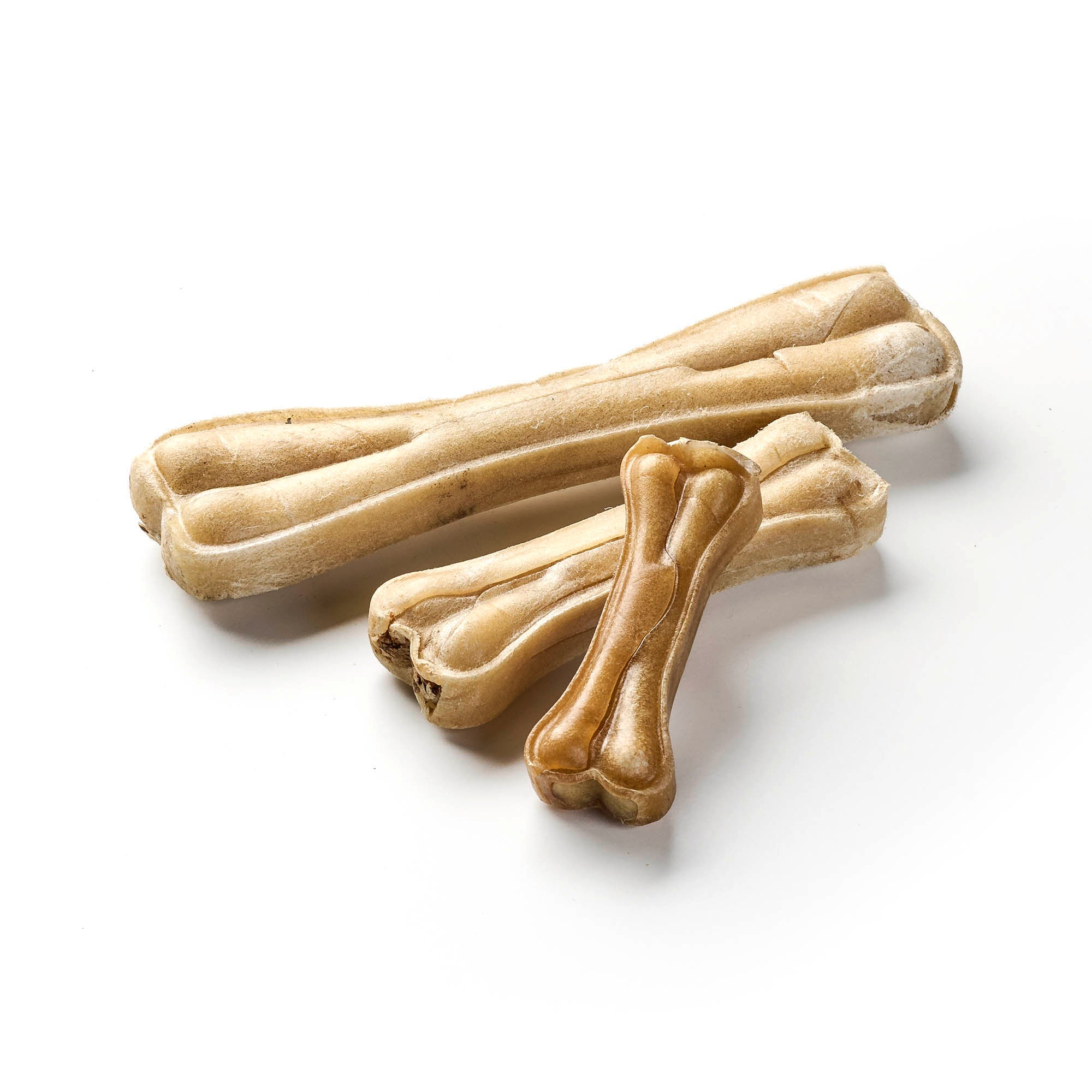
World Dog Day - An ode to our loyal companions
Share
Dogs have always been loyal companions to humans. What began as a cautious rapprochement between early humans and wild wolves has developed into a unique relationship. Today, dogs are an indispensable part of our families. This special bond is based on trust, loyalty and mutual benefit - a partnership that is deeply rooted in our culture.
Content: World Dog Day - An ode to our loyal companions
- The fascinating history of dogs
- The wonderful qualities of dogs
- Dogs in the working world
- Gift ideas for World Dog Day
- Conclusion
Dogs have a very special place in our hearts. Dogs are more than just pets. They love us unconditionally, have great instincts and can sense when we are not feeling well. They are also always there for us, in good times and bad. They are friends, confidants and sometimes even saviors. These loyal souls are always by our side and show us what it means to really be there.
These animals, once wild, are now beloved family members who bring us joy and comfort. Dogs have long been man's best friend. This is because they are constantly adapting and very loyal to us humans.
A special day of the year, October 10th, shows us how important dogs are to our lives. It's an extra birthday, so to speak, for all dogs in the world. On this special day, we not only celebrate, but also say thank you. Thank you to the dogs who make our lives so much better. They are so versatile and sensitive. They are always there and show us how important this connection is. It's time to appreciate everything that dogs do for us - not just as pets, but as real friends and irreplaceable partners.
Discover the range of dog snacks in our store!
The fascinating history of dogs
The history of dogs is truly fascinating. After all, they have been at man's side for thousands of years. Around 20,000 years ago, people began to tame the wolf, our ancestor. This relationship developed when people were still living as hunters and gatherers.
From wolves to companions
The evolution from wolf to dog is one of the most fascinating stories of domestication. Wolves, attracted to human settlements, gradually came closer to humans. This was probably because they could smell the remains of human prey. This proximity had advantages for both sides. People had an advantage when they worked with wolves. The wolves received food and protection from humans. In return, the wolves helped humans to keep predators away or track them down during hunting.
Over time, people preferred the less aggressive, more trusting wolves. These animals were better able to interact with humans and adapt to life in human society. Over the millennia, the domesticated dog was created, which differed from its wild ancestors both physically and behaviorally. Thanks to its adaptability and its growing understanding of human gestures and commands, the dog eventually became an indispensable companion.
Dogs in Antiquity
Dogs played an important role in many ancient civilizations and were more than just animals - they were symbols, companions and important helpers in everyday life. In Egypt, dogs were considered sacred and had a deep religious and cultural significance. They were often associated with the deity Anubis, the god of funeral rites. Anubis was often depicted as a human with a jackal or dog's head, which shows how strong the connection between dogs and spiritual ideas was in Egyptian culture. Dogs were not only valued as guardians and hunters, but were also immortalized in grave goods to serve the dead in the afterlife.
Dogs also played an important role in ancient Greek culture. They were worshipped both in hunting and in mythology. The famous three-headed dog Cerberus, who guarded the entrance to the underworld, is a well-known example of the symbolic importance of dogs in Greek mythology. Dogs were also considered loyal companions of gods and heroes, such as the god of hunting, Artemis, who was often depicted with hunting dogs .
The ancient Romans had a particularly diverse relationship with dogs. They used dogs in a variety of areas, from military operations to protecting property and people. Dogs were trained in the Roman army as guard dogs and attack dogs, fighting on the front lines and supporting the Roman military. In the domestic sphere, they served as watchdogs, protecting homes and farms from intruders. In addition, dogs were valued companions in Roman households, reflecting the social status of their owners. The Romans bred dogs for specific tasks, such as hunting or herding livestock, and valued them for their intelligence, loyalty and versatility.
Overall, dogs in ancient times were indispensable companions and helpers who enriched people's lives in many ways. Their roles ranged from sacred symbols and mythical creatures to loyal working animals and beloved pets. This close bond between humans and dogs laid the foundation for the special relationship we still have with these loyal companions today.
Middle Ages and Renaissance (H3)
Dogs also played an important role in Europe during the Middle Ages, particularly as hunting and guard dogs. The feudalistic social structure of the time encouraged the use of dogs in various specialized tasks that were closely linked to the social status of their owners. Nobles and kings not only kept dogs as loyal companions, but also used them specifically for hunting, which was considered one of the favorite pastimes of the nobility. Hunting dogs were carefully bred to develop special skills, such as tracking and pursuing game or retrieving killed animals.
These breeding practices led to the creation of many dog breeds as we know them today. For example, the German Shepherd comes from medieval Europe, where it was originally bred as a herding dog for flocks of sheep. The Irish Wolfhound , one of the oldest dog breeds, was also bred in the Middle Ages to hunt wolves and other large animals. Another example is the Mastiff , which was also bred in the Middle Ages and served as a guard dog for castles and estates. These breeds are still known and valued today for their specific characteristics.
In addition to their role in hunting, dogs were also used as guards of castles, estates and flocks in the Middle Ages. They protected their owners' property from thieves and wild animals. Guard dogs, such as the Mastiff, were valued for their strength and fearlessness, and their presence alone could deter potential intruders. Breeding of these dogs focused on qualities such as alertness, courage and loyalty, making them indispensable members of the household.
With the transition to the Renaissance, the perception and use of dogs changed. While they continued to be valued for their practical skills, their aesthetics also came to the fore. The Renaissance, an era marked by a rediscovery of the arts and classical antiquity, fostered a growing interest in the beauty and uniqueness of animals, including dogs. Noblemen began to breed dogs not only for their functionality but also for their physical appearance. This gave rise to numerous dog breeds that were sought after for their special characteristics such as coat color, body type and size.
A prominent example from this period is the Cavalier King Charles Spaniel , named after the English King Charles II, who was famous for his elegance and charming character. Such dogs became status symbols, flaunting the wealth and taste of their owners.
The focus on certain characteristics led to dogs being bred for specific tasks, not just work-related ones - for example as companions in society or as fashion accessories for the nobility. This development significantly influenced the way dogs are perceived and used in modern society and created a lasting bond between humans and dogs that goes beyond their original work functions.
Modern times
With industrialization and urbanization in the 19th and 20th centuries, the role of the dog underwent another profound change. While dogs had previously served mainly as working animals, apart from the nobility - be it as herding dogs , hunting companions or guard dogs - their social and emotional qualities increasingly came to the fore. The changes in people's way of life, shaped by the move from the countryside to the cities and the associated change in living and working conditions, meant that dogs were increasingly valued as loyal companions and family members.
In urban environments, where the need for traditional working dogs declined, dogs found new roles. They became symbols of loyalty, security and unconditional love. Families in the growing middle class and in urban areas began to see dogs as an integral part of their home life. Dogs were no longer valued only for their labor, but also for their ability to provide emotional support and form close bonds with their human companions.
At the same time, ideas about animal care and welfare also evolved. Dogs increasingly received attention and care that went beyond their mere functionality. Veterinarians , animal welfare organizations and specialized dog care facilities emerged that focused on promoting the well-being of dogs. This development reflected the growing value that society placed on the welfare of pets.
In addition, dogs began to be deliberately integrated as part of the social structure. They became an integral part of everyday life, whether on the daily walk in the park, as playmates for children or as loyal companions for the elderly. This close bond also led to dogs becoming increasingly the subject of art, literature and popular culture - whether as heroes in films or series such as Paw Patrol and books or as beloved mascots in advertising.
Today, dogs are an integral part of many parts of the world. They are not just pets, but an important part of the family and society. Their ability to adapt to different lifestyles has made them indispensable companions. Whether in small city apartments or large rural properties, dogs continue to offer their human friends loyalty, intelligence and unconditional love - qualities that underpin their importance in modern life.
This transformation from working animals to beloved family members underscores the deep bond humans have shared with dogs for millennia and shows how that relationship has evolved over time without losing its importance.
The wonderful qualities of dogs
Dogs are more than just pets. They are loyal companions, protectors and often family members. Dogs are simply indispensable for us humans.
Dogs can recognize human emotions and react to them. They have this special ability to empathize with us and understand what we are feeling. They are there when we need comfort and are happy with us when we are happy. This strong empathy makes them perfect companions in all situations. They can empathize with our mood very well, which is an important basis for a good relationship.
Loyalty and faithfulness
Dogs are absolutely loyal and faithful. They are always there for us, no matter what. Dogs are simply unique companions because they are unconditionally loyal to us and can always rely on us. They are simply always there for us and make our lives much easier.
Dogs are naturally social animals who love being with their family or group. Dogs are naturally social animals who love being with their family or group. This not only promotes their own well-being, but also the social bonds within a community. Dogs bring people together, make friends, and create a stronger community.
adaptability
Dogs are really adaptable. Whether in the city or in the country, they often get along anywhere. This means they can play an important role in different cultures and societies. And because they are so flexible, they fit seamlessly into different lifestyles.
Eagerness to work and learn
Many dog breeds were specifically bred for specific tasks, such as herding flocks, tracking game or protecting property. This willingness to work is deeply rooted in their nature. With the right training and guidance, dogs can perform a variety of tasks, such as accompanying people with disabilities or participating in rescue operations.
High quality dog snacks to pamper your dog, now available!
Dogs in the working world
Dogs have also become an indispensable part of the working world. Dogs are simply great. They are intelligent, have great empathy and can do a lot. That is why they are so valuable in various professions. Rescue dogs, for example, are deployed in disaster areas, assistance dogs help people with visual impairments, drug and explosive detection dogs support the police and therapy dogs provide comfort and support in hospitals and care facilities. These examples show how versatile and important dogs are in our society.
Gift ideas for World Dog Day
Although honestly there is no need for a reason, World Dog Day is the perfect occasion to give your loyal companion a special treat - whether to celebrate the unconditional love they give you every day or to simply thank them for their unwavering loyalty and companionship. Here are some gift ideas that your dog is sure to love:
- Chews: Unlike conventional treats with lots of unhealthy additives like sugar or preservatives, natural chews not only offer tasty entertainment, but also contribute to your dog's dental health. From classic beef scalp plates to unusual options like camel tripe , water buffalo skin and ostrich tendons - there is a wide range of chewing fun to suit every taste. Even exotic variants like kangaroo or antlers offer your dog an exciting and varied chewing time that not only satisfies him, but is also good for his dental health and can prevent plaque and tartar.
- New toys: A sturdy rope, a squeaky dog toy or an interactive thinking game provide hours of fun and mental challenge.
- Wellness day: A relaxing day with a dog bath , a massage or professional grooming can be a real highlight for your dog and contributes to his well-being. With the right dog bathrobe, the bathing fun is rounded off - and your apartment stays relatively dry.
- A special trip: Use World Dog Day for a special trip. Whether it's a hike in nature, a day at the lake, a visit to the dog park or a bike ride with your dog - your dog will love the time together and the adventure.
No matter what gift idea you choose, the most important thing is to spend time with your dog and show him how much you appreciate him. World Dog Day reminds us how valuable the relationship with our dogs is and how much joy and love they bring into our lives.
Conclusion
World Dog Day is more than just an opportunity to give your four-legged friend a new toy or a tasty snack - it is a precious reminder of the deep-rooted bond that has connected us with dogs for thousands of years. The fascinating journey from wild wolf to your loyal companion shows that these animals are not just pets, but reliable partners who will accompany you through thick and thin.
The insights from history and the unique characteristics of dogs teach you how valuable loyalty, adaptability and empathy are in life. Dogs inspire you every day to value and live unconditional friendship and solidarity yourself. They are not only a reflection of your humanity, but also a role model for real, genuine relationships. By consciously using the knowledge of the historical development and the versatile skills of your dog, you can further strengthen its role in your life and in society. Whether as a loyal family member, as a hero in rescue operations or as a valuable supporter in everyday life - the importance of your dog should not be underestimated.
Use World Dog Day to not only show gratitude, but also actively give something back. Maybe that means spending more time with your dog, being more aware of his needs, or thinking about how you can better integrate him into your life. Because one thing is certain: your loyal companion deserves the same unconditional love and loyalty that he gives you every day. And that is precisely where the true strength of your unique relationship lies—a strength that enriches and inspires you both.
Dog chews available for happy and satisfied four-legged friends!


